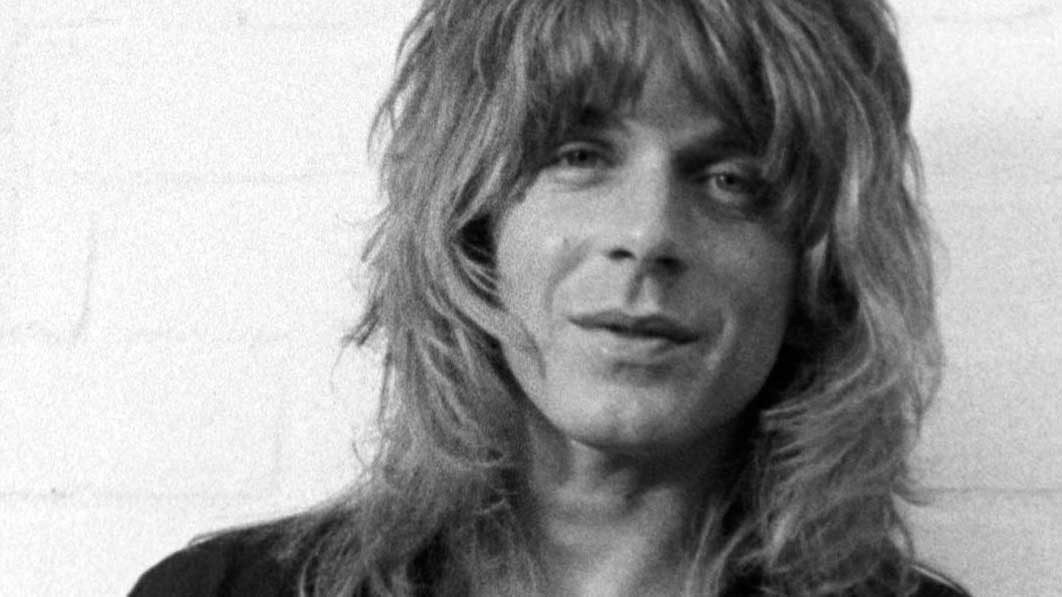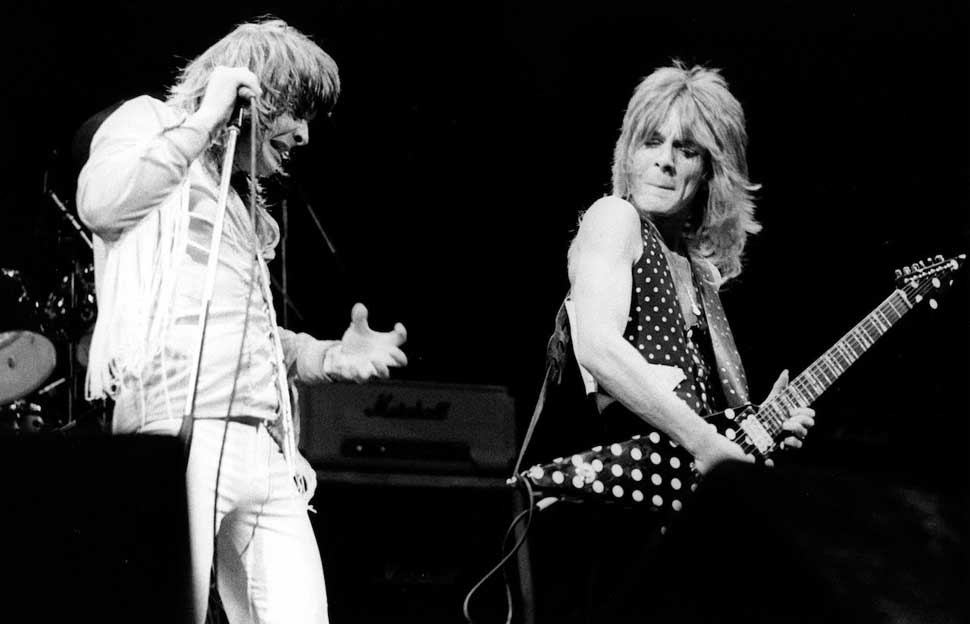
Leaving behind an incredibly slender body of work – his far-too-brief career curtailed in a plane crash in 1982 at the age of 25 – the precision, melody and eye-popping technique Randy Rhoads brought to Ozzy Osbourne’s first two solo albums would provide a lasting template for rock/metal guitarists to this day. Released a mere 14 months apart, it’s not easy to contextualise an output of such brevity, but in truth there’s no real need; the solos speak for themselves and his legacy is unimpeachable. Here are his 10 best.

10. Tonight (1981)
An early example of Osbourne’s career adopting an ‘80s sheen, but the hints of soft rock balladry are counterweighted by a muscular, well-judged arrangement, never quite straying into naff territory. If the first solo sounds like an achingly familiar archetype, it’s because it is – aped by countless metal guitarists ever since. The second however, well, not everyone could keep up…
9. Laughing Gas (1977)
The only track from Rhoads’ pre-Ozzy band Quiet Riot finds him using his allotted solo time in this live workout to shoe-in every trick in his arsenal. Off the leash for once (a rare occurrence in QR), the arpeggios, runs, call-and-response reverb/delay, tapped harmonics, dive bombs et al perhaps over-egg the pudding somewhat, but, certainly demonstrate all the ingredients were in the cupboard.
8. Revelation (Mother Earth) (1980)
Showcasing Rhoads’ classical inclinations, plus his more Ozzy-suited prowess with an ominous riff (doomy bell, tick), the guitarist leaves orbit at speed in the final third. A succession of impossibly shredded scales gives way to some highly dramatic phrasing, blending both his and Ozzy’s strengths into one. Stylistically a precursor to Diary Of A Madman, it was also his favourite song.
7. Dee (1980)
A stark 50 seconds in length, Rhoads’ tribute to his mother Dolores is a wonderfully concise exercise in restraint. A fingerpicked instrumental tracked both on acoustic and classical guitar, the almost madrigal-esque flourishes are bookended by open harmonics. It reveals his background in musical theory and provides a brief moment of reflection and balance in the midst of heavier proceedings elsewhere.
6. Diary Of A Madman (1981)
The ultimate showcase for Rhoads’ widely spread talents and influences, and the most complex song ever written or performed by either him or Ozzy. It can be viewed as an early influence on later, long-form prog metal. Classical in both structure and sensibility, Wagnerian in tone, Rhoads’ reverb-soaked solo dials down the zing and adds an ethereal layer to already swirling atmospheres. As a summation of Rhoads’ all-too-scant canon, this covers all the bases.

5. Flying High Again (1981)
Triple tracked with barely a nanosecond difference between takes, the implication here is ‘I’m not making it up as I go along’ and ‘Yes, I can do it all day if I have to’. Technically breathtaking – trills, sweeps and taps (some one handed) – at precisely the halfway point Rhoads pops up and out of the mid-pace, takes aim, and sends the song skywards.
4. Mr Crowley (1980)
Despite his undoubted mastery of theory and chops, it was Rhoads’ instinctive ear for the melodic requirements of a song that placed him above your average ten-a-penny shred-head. Both solos lift the strongest parts of the vocal melody and whip them into a furious whirlwind of fervour and brawn. It’s hard to overstate how much they define the song.
3. Over The Mountain (1981)
With its staccato, driving riff and high-end vocals, Diary Of A Madman’s album opener set a strong marker to those who doubted the band’s ability to recreate the highlights of Blizzard… Seemingly squeezing three solos into one, Rhoads throttles a chest-tightening melody out of his whammy bar with the abandon of the titular madman himself.
2. Crazy Train (1980)
Of all of Rhoads’ work, this treads the fine line between technique and feel most astutely. The fills are worthy of a review in themselves, let alone the finger-stretching riff, and the solo manages to include sing-along phrases, densely plotted arpeggios and rip-snorting cascades. It’s usually viewed as his signature solo and deservedly so.
1. I Don’t Know (1980)
If the Blizzard Of Ozz opener that kick-started Osbourne’s solo career was a nihilistic shrug at the world, that sentiment was somewhat countered by the life-affirming energy of Rhoads’ riff. Out of the traps like a greyhound, Rhoads casually offloads some extremely brash fills, drops way back in the pocket for a gorgeous middle eight, before bending and trilling his way into history. Exceptional.







